Which Author Has Your Myers-Briggs® Personality Type? – Part 2 – The Sensors
Last week I posted about some of the most famous Intuitive authors of all-time. This week I’m thrilled to present the greatest Sensor authors! Sensors excel at describing picturesque details, creating engaging dialogue between characters, or focusing on fact-based information. They tend to compose stories in a sequential, linear fashion so that readers can easily follow along. One blogger who talks a lot about writing style and personality type is Andrea J. Wenger, you can check out her blog here.
I hope you enjoy this! Please feel free to comment and share your thoughts and ideas!
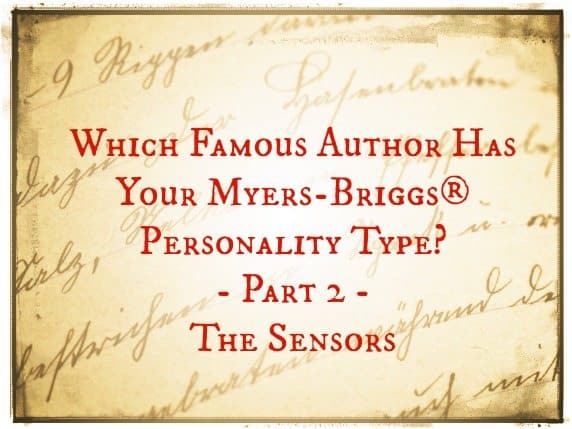
Not sure what your personality type is? Take our new personality questionnaire here. Or you can take the official MBTI® here.
ESTP Author – Sir Arthur Conan Doyle
“Once you eliminate the impossible, whatever remains, no matter how improbable, must be the truth.”
– Arthur Conan Doyle, ESTP
Sir Arthur Conan Doyle is best known for the 60 legendary mysteries he wrote featuring the wildly popular detective, Sherlock Holmes. Doyle was also a physician, which gave him plenty of background information with which to write his character, Dr. Watson. Doyle wrote in the linear style characteristic of Sensing-dominant authors, he also wrote with an excitement and an eye (or pen!) for detail that drew readers in. You would be hard-pressed to find an author who can create as iconic of a character as Sherlock Holmes!
“I never guess. It is a capital mistake to theorize before one has data. Insensibly one begins to twist facts to suit theories, instead of theories to suit facts.”
– Sir Arthur Conan Doyle
Other Notable ESTP Authors: Winston Churchill, Ernest Hemingway.
ISTP Author – Miyamoto Musashi
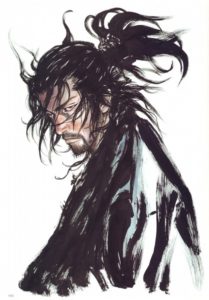
“Do not sleep under a roof. Carry no money or food. Go alone to places frightening to the common brand of men. Become a criminal of purpose. Be put in jail, and extricate yourself by your own wisdom.”
– Miyamoto Musashi, ISTP
Miyamoto Musashi was one of the most famous Japanese swordsmen of all time. He is the founder of the Hyoho Niten Ichi-Ryu style (two-sword style) of swordsmanship, and is famous for his renowned masterpiece; The Book of Five Rings. Musashi embraced a practical philosophy of life and believed avidly that success in combat relied on developing one’s own character. He had incredible tactical knowledge, was strategic in all his battles, and was a master of tools. ISTPs are famous for these same characteristics and rank highest by psychologist David Keirsey on tactical intelligence. Musashi had an anti-establishment, independent nature and believed in being stoic and calm, no matter what the situation. I encourage any ISTPs who read this to check out his book! You may find a kindred spirit in its pages.
“Both in fighting and in everyday life you should be determined though calm. Meet the situation without tenseness yet not recklessly, your spirit settled yet unbiased. Even when your spirit is calm do not let your body relax, and when your body is relaxed do not let your spirit slacken. Do not let your spirit be influenced by your body, or your body be influenced by your spirit.”
Another Notable ISTP Author: Frank Miller
ESFP Author – Margaret Mitchell
“Until you’ve lost your reputation, you never realize what a burden it was or what freedom really is.”
– Margaret Mitchell, ESFP
Margaret Mitchell is the famed Southern author of Gone With the Wind. At a very young age, she had endless enthusiasm for storytelling, acting, and even directing! As a child, she enjoyed gathering as many children as possible so she could tell them a story or re-enact a play. She lived up to the ESFP Entertainer title by capturing the attention of her peers and even adults with her imaginative stories and performances. Mitchell admired people who had “gumption” and the courage to make the most of life in the present moment. According to literarytraveler.com, Mitchell “enjoyed social events and being the center of attention. She was a lively and spirited girl with a great sense of humor.”
“Every problem has two handles. You can grab it by the handle of fear or the handle of hope.”
– Margaret Mitchell
ISFP Author – William Wordsworth
“When from our better selves we have too long been parted by the hurrying world, and droop. Sick of its business, of its pleasures tired, how gracious, benign is solitude.”
– William Wordsworth
William Wordsworth is one of the most famous English Romantic poets, who helped to launch the Romantic Age in English literature. His most notable work is titled The Prelude, a semi-autobiographical poem of his early years. He wrote about loss, death, endurance, separation, abandonment, and the beauties of nature; all with equal adeptness and sincerity. Wordsworth felt strongly that his poetry should communicate to the everyday person. He felt that much of poetry was pompous or written in a way that only the upper-class could understand. Wordsworth worked especially hard to write poems that were simplistic yet meaningful. He said of poetry, that it should be written: “in a language really used by men in humble and rustic”. Wordsworth cared deeply about people and wanted to bring the joy and beauty of poetry to anyone and everyone. The simplicity with which he was able to describe the complexities of life is a testament to the Sensing part of his personality. He wrote things in a clear, detailed way, without losing any of the depth or power of words in the process.
“The best portion of a good man’s life are his little, nameless, unremembered acts of kindness and love.”
– William Wordsworth
ISFJ Author – Lord Alfred Tennyson
“No man ever got very high by pulling other people down. The intelligent merchant does not knock his competitors. The sensible worker does not knock those who work with him. Don’t knock your friends. Don’t knock your enemies. Don’t knock yourself.”
– Lord Alfred Tennyson, ISFJ
Alfred, Lord Tennyson was the most renowned poet of the Victorian era. His most famous works include “In Memoriam,” “The Charge of the Light Brigade” and “Idylls of the King”.
Tennyson was a shy, quiet man, who came from humble beginnings but who eventually earned the respect and praise of noblemen and even Queen Victoria. He believed in capturing the beauty of an unaltered, rural England and in performing his duty to society. He was a kind, conscientious man who unfortunately suffered many hardships in his life. He grew up in an abusive home with an alcoholic father who regularly took out his anger on his wife and children. One of Tennyson’s brothers was confined to an insane asylum, another had recurring bouts of addiction to drugs, a third was put into a mental institution because of his alcoholism, another died very young, and all of the rest of his siblings suffered from severe mental breakdowns. Tennyson took solace in his poetry throughout much of his life; it was his respite from the trauma and disappointment. No matter how famous Tennyson became, he strived to be “the people’s poet” and to address the concerns and passions of the everyday man. Today Tennyson is recognized as a gifted poet who addressed eternal human questions, and who offered both solace and inspiration to his readers.
“I can’t sleep without knowing there’s hope. Half the night I waste in sighs. In a wakeful doze I sorrow. For the hands, for the lips…the eyes. For the meeting of tomorrow.”
– Lord Alfred Tennyson
ESFJ Author – John Updike
“Dreams come true; without that possibility, nature would not incite us to have them.”
– John Updike, ESFJ
John Updike was an American novelist, poet, short story writer, art critic, and literary critic. He is most famous for his “Rabbit” series, which chronicles the life of the middle-class everyman Harry “Rabbit” Angstrom over the course of several decades. He wrote regularly for The New Yorker and The New York Review of Books. Updike was famous for addressing the sufferings, concerns, and passions of the average American. Like a true sensor, he remained very realistic in his writing, and descriptively and elegantly wrote about the physical world. He described his style as an attempt “to give the mundane it’s beautiful due”. Like a true ESFJ, Updike had a down-to-earth nature and sense of humor; he captured the beauty of tradition and everyday life, and he believed in kindness to all people.
“If men do not keep on speaking terms with children, they cease to be men, and become merely machines for eating and for earning money.”
– John Updike
ISTJ Author – Warren Buffett
“It takes 20 years to build a reputation and five minutes to ruin it. If you think about that, you’ll do things differently.”
– Warren Buffett, ISTJ
Warren Buffett is most famous for being an American business magnate, investor, and philanthropist. However, Buffett also authored Invest Like a Billionaire, and The Essays of Warren Buffett: Lessons for Corporate America. Buffett embodies many of the core ISTJ values; responsibility to the community (he has pledged to give away 99% of his fortune to philanthropic causes), frugality, business sense, and practicality. He is often referred to as the “Wizard of Omaha” because of his incredible intelligence in the world of investing.
Buffett has become a go-to man for practical career and life advice. One of his most famous tips is to have people create a list of the top 25 accomplishments that they would like to complete over the next few years of their life, and to then pick the five most-important list items. According to Buffett, people need to “avoid at all cost” the initial, longer list, as it will hinder the achievement of the top-five. Buffett’s eye for detail, keen logical eye, practical manner of living, and strong sense of tradition are all traits of the ISTJ personality.
“It’s better to hang out with people better than you. Pick out associates whose behavior is better than yours and you’ll drift in that direction.”
– Warren Buffett
ESTJ Author – Tom Clancy
“Nothing is as real as a dream. Responsibilities need not erase it. Duties need not obscure it. Because the dream is within you, no one can take it away.”
– Tom Clancy
Tom Clancy was an American novelist and video game designer best known for his detailed espionage and military storylines set during and after the Cold War. Some of his most famous works include The Hunt for the Red October, Patriot Games, Clear and Present Danger, and The Sum of All Fears. Tom Clancy had an eye for detail and a no-nonsense practical mindset that came across loud and clear in his interviews. “A lot of people think [when you write] something mystical happens to you, that maybe the muse kisses you on the ear. But writing isn’t divinely inspired—it’s hard work.” Unlike an Intuitive author who would delve into symbolism, fantasy, and metaphor, Tom Clancy thrived on writing in a very literal, straightforward way. His tone is serious and he keeps up the pace with intense, complex plots and plenty of action.
“What the government is good at is collecting taxes, taking away your freedoms, and killing people. It’s not good at much else.”
– Tom Clancy
What Do You Think?
Do you have any suggestions for authors that should be added to this list? Let me know! I’d love to hear from you!
Find out more about your personality type in our eBooks, Discovering You: Unlocking the Power of Personality Type, The INFJ – Understanding the Mystic, and The INFP – Understanding the Dreamer. You can also connect with me via Facebook, Instagram, or Twitter!


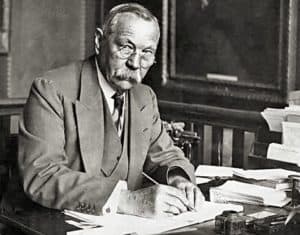
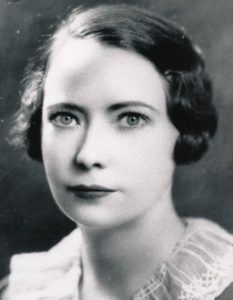
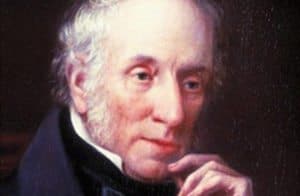
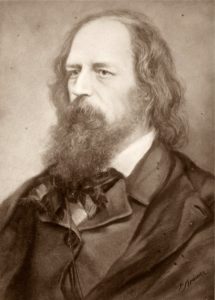
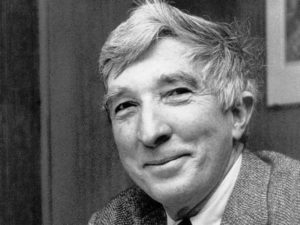
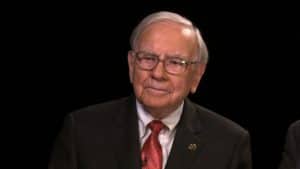
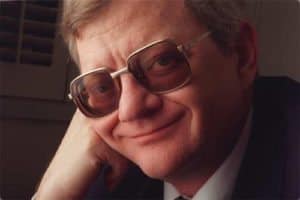

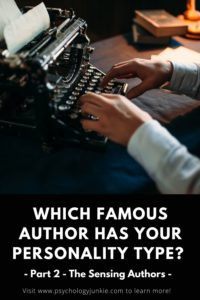











2 Comments